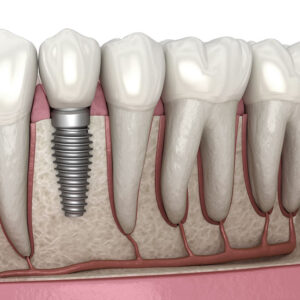Tooth dehydration is a lesser-known but highly significant factor that can accelerate dental complications. Many people assume that tooth issues only arise from decay or physical injury, but changes in moisture levels inside a tooth can dramatically affect its health. When a tooth loses moisture, its structure becomes weaker and more vulnerable. Over time this can lead to discomfort, sensitivity, and deeper infections that may require advanced care such as root canal treatment in Hayward or root canal treatment in California. Understanding how dehydration impacts the teeth can help you take proactive steps to maintain long-term oral health.
What Is Tooth Dehydration
Tooth dehydration refers to the loss of essential moisture within the enamel and dentin layers. While teeth may appear solid, they contain tiny pores and internal structures that naturally retain moisture. This hydration helps maintain strength, flexibility, and resistance to stress. When dehydration occurs, the tooth can become brittle and more prone to cracking or bacterial penetration.
Several daily habits can cause tooth dehydration. These include mouth breathing, consuming too much caffeine or alcohol, and using whitening products too frequently. Even prolonged exposure to air during dental procedures can temporarily dehydrate a tooth. While short-term dehydration is usually reversible, chronic dehydration can contribute to serious dental issues.
How Dehydration Weakens Tooth Structure
To fully understand how dehydration accelerates root canal problems, it is important to explore the way tooth structure responds to moisture loss. A hydrated tooth is strong and resilient. Its internal collagen fibers and mineral content work together to absorb forces during chewing. When moisture is lost, the collagen matrix becomes stiff and brittle. The tooth can then develop microscopic cracks that gradually expand.
These cracks allow bacteria to enter deeper layers of the tooth. When bacteria infiltrate the dentin and pulp, inflammation begins. Over time, this inflammation can become severe, leading to infection that requires prompt intervention. Many patients seek root canal treatment in California for infections that began as minor structural weaknesses caused by dehydration.
Increased Sensitivity Due to Dehydration
One of the earliest signs of dehydration is heightened tooth sensitivity. When the dentin layer loses moisture, the tiny tubules inside it become more exposed. These tubules connect directly to the nerve tissue within the pulp. As a result, changes in temperature or pressure can produce sharp, uncomfortable sensations.
This sensitivity may seem minor at first, but it often indicates that the tooth is becoming vulnerable. Without proper hydration and dental care, the dentin can deteriorate further. Bacteria can easily travel through these open tubules and reach the pulp chamber. Once the pulp becomes infected, the need for root canal treatment in Hayward becomes much more likely.
The Relationship Between Tooth Dehydration and Bacterial Growth
Bacteria thrive in weakened environments. When dehydration occurs, enamel can lose minerals and become softer. Although the tooth may not show visible damage at first, its defenses are compromised. Softened enamel makes it easier for bacteria to invade and multiply.
When bacteria reach the inner pulp, they cause inflammation and infection. This is when symptoms like severe pain, swelling, or persistent sensitivity begin. At this stage, conservative treatments such as fillings or fluoride applications are usually not enough. Root canal treatment in Hayward or root canal treatment in California becomes necessary to remove infected tissue and restore the tooth.
Dehydration During Dental Procedures
Many patients are surprised to learn that dental procedures can temporarily dehydrate teeth. For example, when a tooth is isolated during treatment, it may be exposed to air for an extended period. Whitening procedures can also cause dehydration due to the nature of bleaching agents. While this dehydration is often temporary, the tooth may become more sensitive for several hours or days.
Dentists take steps to minimize dehydration during procedures. They may use protective gels, hydrating agents, or controlled moisture systems. However, if the tooth is already compromised, even a short period of dehydration can exacerbate an existing problem. Patients with weak enamel or untreated cavities should be especially cautious.
Signs That Tooth Dehydration Is Leading to Root Canal Problems
There are several warning signs that dehydration is progressing into a more serious issue. Persistent sensitivity is one of the earliest indicators. You may also notice a dull ache, especially after chewing or drinking something cold. Cracks or chips may appear more easily, even when biting into soft foods.
As dehydration worsens, the pulp can become inflamed. This is when deeper symptoms appear. Throbbing pain, swelling near the gumline, darkening of the tooth, or a small pimple on the gum can indicate an infection. At this stage, root canal treatment in California is the most effective option to save the tooth.
Preventing Tooth Dehydration
Preventing dehydration is a simple yet effective way to lower the risk of root canal problems. Drinking plenty of water is the most important step. Hydration helps maintain saliva production, which naturally protects your teeth. Avoiding excessive caffeine and alcohol can also help since these beverages contribute to dryness.
If you frequently breathe through your mouth while sleeping, consider using a humidifier or speaking to a dentist about possible solutions. Limit the use of whitening strips or bleaching products, especially if you already experience sensitivity. Regular dental checkups can also help monitor your enamel and detect early signs of demineralization.
The Importance of Early Intervention
Catching dehydration-related issues early can prevent the need for more advanced treatments. If you notice increasing sensitivity or minor cracks, schedule a dental evaluation. Dentists can apply remineralizing treatments or recommend changes to your oral care routine. Early action protects the tooth structure and preserves the pulp.
However, if infection has already developed, root canal treatment in Hayward can relieve pain and save the tooth. Root canal therapy removes bacteria and damaged tissue, then seals the tooth to prevent future infections. This treatment is highly effective and can restore comfort and function.
Conclusion
Tooth dehydration is an overlooked but serious contributor to root canal problems. When a tooth loses moisture, it becomes more susceptible to cracking, bacterial invasion, and sensitivity. Over time, these issues can lead to deep infections that require professional care. Understanding the connection between dehydration and dental health empowers you to take preventive steps. Whether through better hydration, routine checkups, or timely intervention, you can protect your teeth from long-term damage. If an infection does develop, root canal treatment in California provides a reliable way to restore your oral health and preserve your natural smile.



